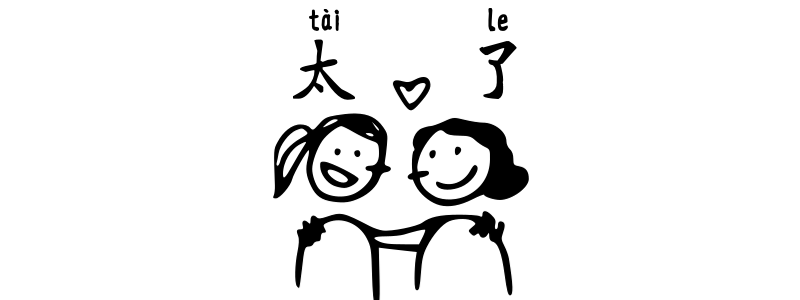In Chinese, the phrase 太 tài…了 le is used to express an extreme degree of something. It’s commonly used to convey a sense of “too” or “very” before an adjective to emphasize the extent or intensity of that quality.
The structure 太 tài…了 le in Chinese can be used to express both positive and negative meanings, depending on the context and the adjective used.
Positive
太好了太好了
Wonderful
(This phrase expresses a positive sentiment about something being exceptionally good.)
太美了太美了
Gorgeous
(Expressing a positive sentiment about something being exceptionally beautiful.)
這消息太棒了这消息太棒了
This news is fantastic.
你做的飯太好吃了你做的饭太好吃了
The meal you made is incredibly delicious.
今天能見到你我真的太開心了今天能见到你我真的太开心了
I’m so happy to see you today.
Negative
太貴了太贵了
Too expensive
太累了太累了
Too tired
今天的天氣太熱了今天的天气太热了
Today’s weather is too hot.
你的聲音太大了你的声音太大了
Your voice is too loud.
這個手機太舊了这个手机太旧了
This phone is too old.
這堂課太無聊了这堂课太无聊了
This class is too boring.
With or Without 了
With 了
This phrase is often used to express a personal opinion or reaction and is used to express a completed or current state.
這個手機太舊了这个手机太旧了
This phone is too old.
你做的飯太好吃了你做的饭太好吃了
The meal you made is incredibly delicious.
Without 了
It is a more general statement of something.
太舊的手機不要買太旧的手机不要买
Don’t buy a phone that’s too old.
你做的飯太好吃的話,我可能會每天來你家吃你做的饭太好吃的话,我可能会每天来你家吃
If your cooking is too delicious, I might come to your house every day to eat.


